Pilkington Family Crest, Coat of Arms & Pilkington Name Origin
|
|
|
|
|
| Return to Home page | Bookmark this page | Link to this page | Send a Pilkington Postcard |
| Find Your Name | ||||||||
| A | B | C | D | E | F | G | H | |
| I | J | K | L | M | N | O | P | |
| Q | R | S | T | U | V | W | X | |
| Y | Z | |||||||
Pilkington Family Crest


Origin of the Name Pilkington
The ancient history of the name Pilkington was found in the allfamilycrests.com archives. Pilkington is a locality name meaning 'of Pilkington', from a manor found in the parish of Prestwich, County Lancashire. This name is usually of English descent and is found in many ancient manuscripts in that country. Examples of such are a Oliver Pilkington of Bolton and an Adam Pilkington of Salford who were recorded in the 'Wills at Chester' in the year 1594. A Roger de Pilkington and an Oliver Pilkinton were recorded in 'Baines Lancashire' in the year 1311.
Names were recorded in these ancient documents to make it easier for their overlords to collect taxes and to keep records of the population at any given time. When the overlords acquired land by either force or gifts from their rulers, they created charters of ownership for themselves and their vassals. It was by creating, maintaining and updating these reference books that they were able to maintain their authority and enforce laws.
In Ireland this name and its variants were introduced into Ulster Province by settlers who arrived from England and Scotland , especially during the seventeenth century. It was the 'Plantations of Ireland ' in the sixteenth and seventeenth centuries that marked the end of Gaelic supremacy in Ireland . While the influx of settlers in the wake of the earlier Anglo-Norman invasion of the twelfth century resulted in a full integration into Irish society of the new arrivals, the same never occurred with the Ulster Planters who maintained their own distinct identity.
The Pilkington coat of arms came into existence centuries ago. The process of creating coats of arms (also often called family crests) began in the eleventh century although a form of Proto-Heraldry may have existed in some countries prior to this. The new art of Heraldry made it possible for families and even individual family members to have their very own coat of arms, including all Pilkington descendants.
|
WONDERFUL GIFTS FOR EVERY OCCASION
Show Off Your Heritage With Our Range Of Top Class Gifts For Your Family Name! VERY LIMITED TIME OFFER: FREE DELIVERY!!! |
||
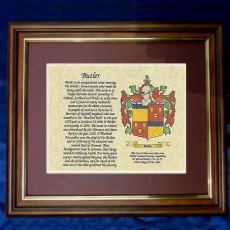 Parchment Prints: Framed, Unframed, Perfect  |
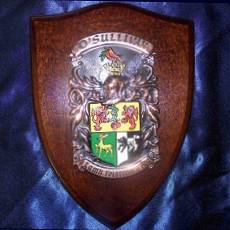 Researched Hand-Painted Plaques & Shields  |
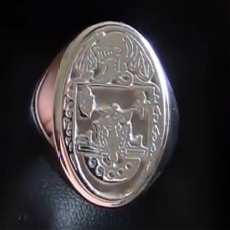 Incredible Hand-Engraved Signet & Seal Rings  |
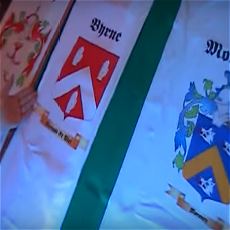 Get your Family Crest Flag, on Ireland or White background!  |
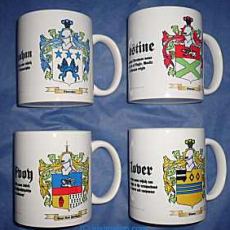 Personalized Coffee Mugs Make Thoughtful Personalized Gifts  |
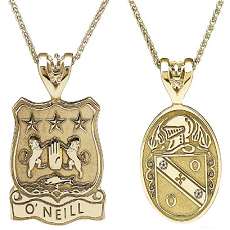 Engraved Pendants in Gorgeous Gold or Stylish Silver.  |